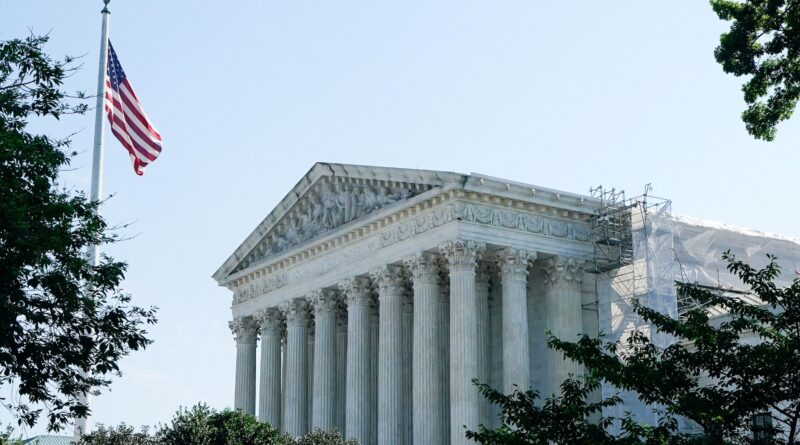SCOTUS limits nationwide injunctions, partial win to Trump on birthright citizenship
The Supreme Court on Friday granted a partial stay of nationwide injunctions issued by district judges against President Donald Trump’s executive order to effectively end birthright citizenship.
The 6-3 opinion came from Justice Amy Coney Barrett. The court’s three liberal justices dissented.
In a partial win for the presidential power, the court said it was not deciding whether the executive order from Trump was constitutional but rather focusing on whether a single judge has the authority to issue universal injunctions.
“Government’s applications for partial stays of the preliminary injunctions are granted, but only to the extent that the injunctions are broader than necessary to provide complete relief to each plaintiff with standing to sue,” the opinion read.
Legal challenges will continue to Trump’s Day 1 order to deny citizenship to children born on U.S. soil to unlawful immigrants or those on a temporary immigrant status, as the court did not rule on the merits of the cases.
Trump can move forward immediately, though, with developing plans to implement the order, which does not take effect for 30 days.

The U.S. Supreme Court building is seen the morning before justices are expected to issue opinions in pending cases, in Washington, June 14, 2024.
Elizabeth Frantz/Reuters
Friday’s decision is a win for Trump in his crusade against nationwide injunctions that have blocked some of the executive actions he’s taken so far in his second term.
Supporters of nationwide injunctions say they serve as an essential check to potentially unlawful conduct and prevent widespread harm. Critics say they give too much authority to individual judges and incentivize plaintiffs to try to evade random assignment and file in jurisdictions with judges who may be sympathetic to their point of view.
Justice Sonia Sotomayor read her dissent aloud from the bench, criticizing the court’s majority.
“No right is safe in the new legal regime the Court creates,” Sotomayor wrote. “Today, the threat is to birthright citizenship. Tomorrow, a different administration may try to seize firearms from lawabiding citizens or prevent people of certain faiths from gathering to worship.”
“The majority holds that, absent cumbersome class-action litigation, courts cannot completely enjoin even such plainly unlawful policies unless doing so is necessary to afford the formal parties complete relief,” she added. “That holding renders constitutional guarantees meaningful in name only for any individuals who are not parties to a lawsuit. Because I will not be complicit in so grave an attack on our system of law, I dissent.”
